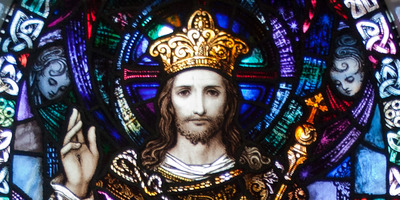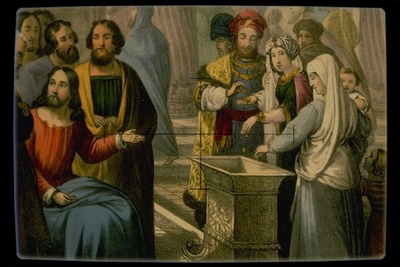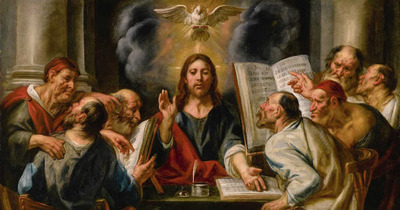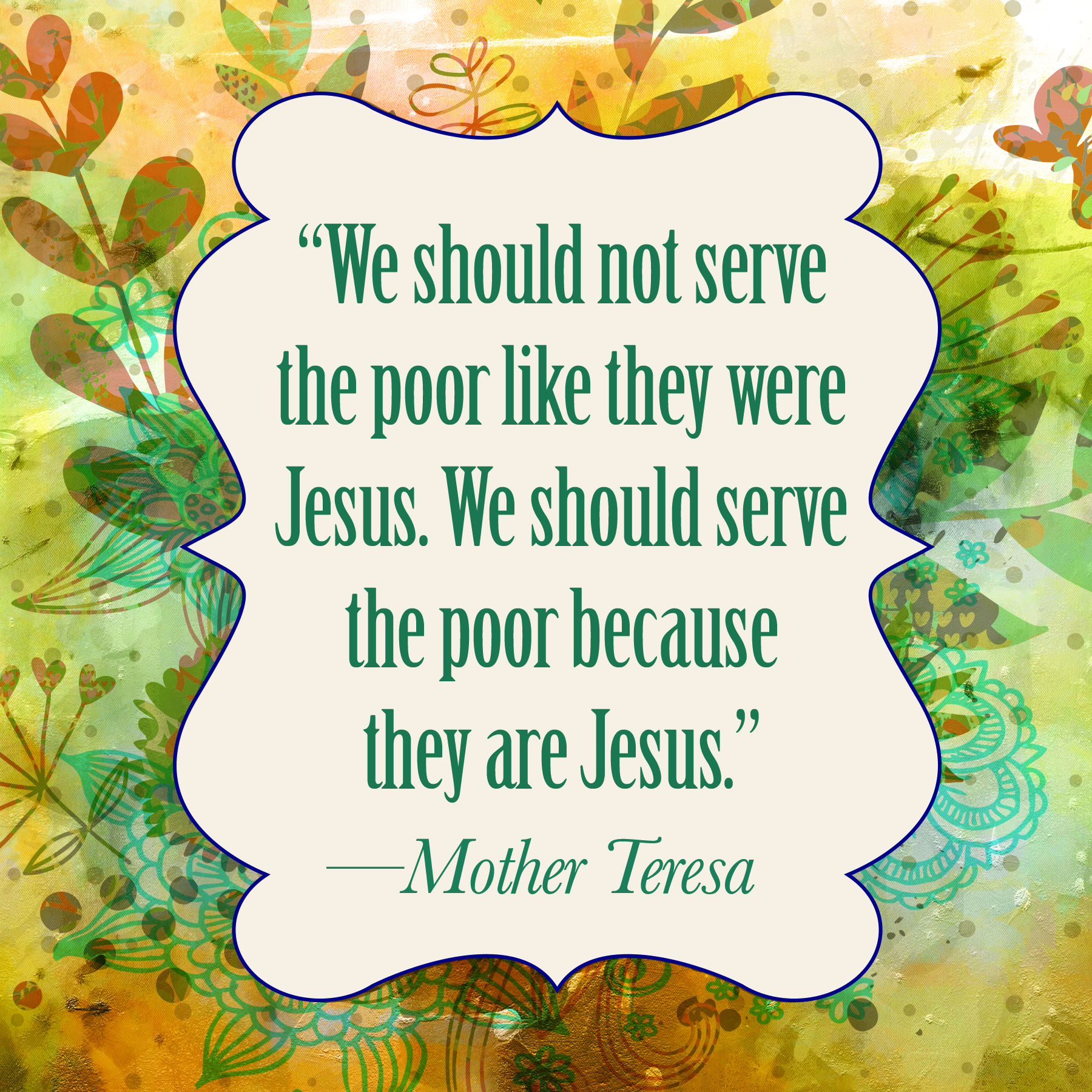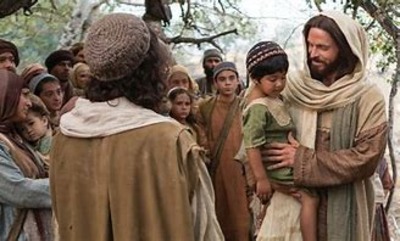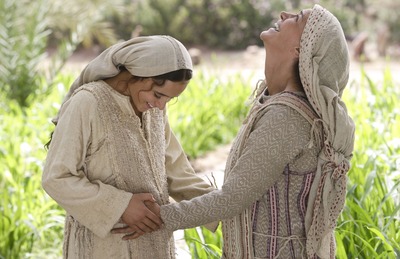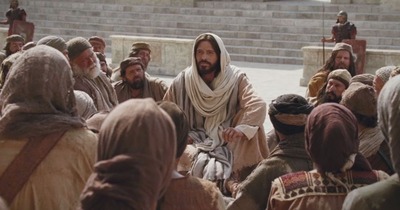November 24, 2024
|by N W
|
0 Comments
|
Deacon Mark, Ordinary Time, Saints, Service
The Solemnity of Our Lord Jesus Christ, King of the Universe
November 24, 2024 — Year B
Readings: Dn 7:13-14 / Ps 93 / Rv 1:5-8 / Jn 18:33b-37
by Rev. Mr. Mark De La Hunt, Permanent Deacon
Today we celebrate the Solemnity of Our Lord Jesus Christ, King of the Universe, which is the closing of Ordinary time. Next week we begin the new Church year with the season of Advent, and the primary gospel will change from Mark to Luke. What is our King speaking to your heart for Advent? Pray, reflect, and act on His request. But for today’s homily, we will focus on Jesus Christ’s kingship in our everyday life and make it personal.
First, let’s get grounded in scripture. Jesus’ kingship is depicted throughout the Bible from Genesis to Revelation. In Genesis, we see the mysterious figure, Melchizedek, a biblical type for Jesus, for he was a king and priest like Jesus and made offerings of bread and wine. (Gn 14) In today’s first reading, Daniel prophesies about Jesus, “One like a Son of Man received dominion, glory, and kingship.” (Dn 7:13)
Later on, the prophet Nathan told King David that his throne would be firmly established forever. (2 Sam 7:16) God’s promise to King David leads us to Jesus in the gospels. Gabriel told Mary that, “The Lord God shall give [her future Son, Jesus] the throne of his father David and He shall reign over the house of Jacob forever.” (Lk 1: 32-33) In today’s gospel, Jesus clarifies that His kingship does not come from this world. In today’s second reading from the last book of the Bible, Revelation, the apostle John writes that Jesus Christ is “ruler of the kings of the earth.”
Scripture is crystal clear that Jesus is King of the Universe. We either give our lives to His service or we give them to the evil one. There are no other choices. Do I really want to serve Jesus the King?
Jeff Cavins suggests that we want to serve the King in His splendor and glory, not in the poor, the stranger, the sick, and imprisoned. Yet, when we intentionally, according to the King’s command, bring His love to others, His compassion, His mercy, and His good news, we are at once seeing and serving the King in them and yet doing so with His grace and with gifts He has given us for that moment.
To help bring home the personal nature of serving our King through others, I want to share something from the Hallow app. They have a Catholic Social Teaching series, and one of the reflections is on homelessness. Blake Brouilette, Director of Christ in the City, a missionary formation and homeless outreach program in Denver and Philadelphia says, “Homelessness is a person to encounter.” He goes on to share that we see the poverty and brokenness of the homeless, but that Mother Teresa saw more. While visiting the United States, she observed: “There is a poverty in your country that is just as severe as our poorest of the poor. In the West, there is a loneliness, which I call the leprosy of the West. In many ways, it is worse than our poor in Calcutta.”
Blake added that “By looking deeper at poverty, we see a common thread in the homeless and the poor which can be traced back to broken relationships. This rupture of relationships is with others, society, God, themselves, and creation – and it results in isolation. The absence of genuine connection is our deepest form of poverty.”
This leprosy of loneliness and absence of genuine connection is what our King is asking us to heal by being saints. Fr. Mike Schmitz identified a common characteristic of saints that really gets at the heart of this, and you likely can have it with just a little effort. Saints are available when needed, just like their King when He walked this earth. It is easy to overlook this simple disposition, necessary for us to be saints.
When Jairus asked Jesus, who was speaking with the crowds, to come and save his dying daughter, Jesus did so. The same happened when Mary and Martha asked Him to come save their brother. In another case, no one had to ask, He just spontaneously reached out in compassion. This was when He happened upon the widow mourning her only son, and He stopped to help. In all three cases, he raised a person from the dead and restored a family’s wholeness. The lonely and disconnected need our time, our presence, and our testimony, so they can be restored. By our being available to them, they become genuinely connected with our King and His family.
What robs us of our availability? The Jews said, “We have no king but Caesar.” Jeff Cavins suggests we ask ourselves a tough question using this verse: Where have I, by the way I live, said, “I have no king, but (fill in the blank.)” What goes into this blank are our excuses and sins.
Regarding excuses, we have many. Some we overcome, some we do not. But our King is patient. He called me for years to be a deacon. My excuses for saying no were twofold. I was too unhealthy and too sinful. How did I get to the point of saying yes? Even though I could not see how it would work, I kept praying and reflecting on it. I kept the door open. And for His part, the King sent me affirmations through others, and He illuminated a scripture verse to ease my concern about my poor health: Ps 92: 13-16. He even moved a class start date an entire month when I was hospitalized just two years into formation. Had He not done that, I would have been at risk of dropping out. As a deacon I have been blessed with opportunities to serve our King through those in need.
Regarding sins, filling in the blank “I have no king but…” Is anything in my life where I say “no” to my King and “yes” to something He has commanded I do not do, or when I say “no” to something He has commanded that I should do? Sin makes us unavailable, because it imprisons us in a dungeon of selfishness.
Therefore, serving our King begins with confessing our sin to Him, so that He can set us free to be available. In a talk on people who oppose the King by rejecting His kingdom (think Catholic Church), Fulton Sheen said, “The basis for our opposition to the Catholic Church is our moral life, or immoral life.”
Speaking of our sin, Fulton Sheen shared a metaphor. “If I try to open a can with a pencil two things happen. I will fail to open the can, and I will ruin the pencil. So it is when I use my gifts in a way that is against [the King’s] will. Two things happen: I fail to achieve whatever happiness I thought I would gain, and I hurt myself.”
To illustrate this, he goes on to tell a story of a fallen-away Catholic actress who had fame and beauty and three men in her life; i.e. she was hurting herself. She agreed to meet him at the church, if he promised not to ask her to go to Confession. He promised. She arrived at the church as planned, and as they were walking down the side aisle of the nave to show her a painting, he pushed her into the confessional, thereby keeping his promise to not ask her to go to Confession. She confessed her sins and experienced true repentance, a radical reorientation of her life. The King set her free from the dungeon of sin and selfishness, freeing her to follow His command to be available for those in need. She became a nun and was happier for it.
We, like that actress, see a lot of temptations in this world, but we cannot insulate ourselves from those evils by hiding in the church and Christian homes. Our King said as much to His Father, “I do not ask that you take them out of the world but that you keep them from the evil one.” (John 17:15) To protect us from the evil one, our King doesn’t have to do battle per se. His presence in us casts out all darkness. We simply need to ensure our King lives in us. How? The King said, “If anyone loves me, he will keep my word, and my Father will love him, and we will come to him and make our home with him.” (John 14:23)
Our King’s promise is not an abstraction or warm fuzzy feeling for Christians who are Catholic! It is the reality of our King coming to us in the Sacraments. He cares for our sickness in Holy Anointing. He visits us imprisoned by sin, freeing us in Confession. He feeds our hungry souls in the Eucharist. His availability in the Sacraments frees us and strengthens us to be available for those in need, and then He and His Father make our soul their home. In essence, when caring for others, we free them from the leprosy of loneliness and give them genuine connectedness, for we visit them with their King and His Father.
Let’s close with words from our King’s lips that sum up all of this. Close your eyes and echo this prayer in your heart. Make it personal. Jesus, my King, in me may “thy kingdom come and thy will be done on earth as in heaven.” Amen.
KEEP READING
 540-586-8988
540-586-8988 

